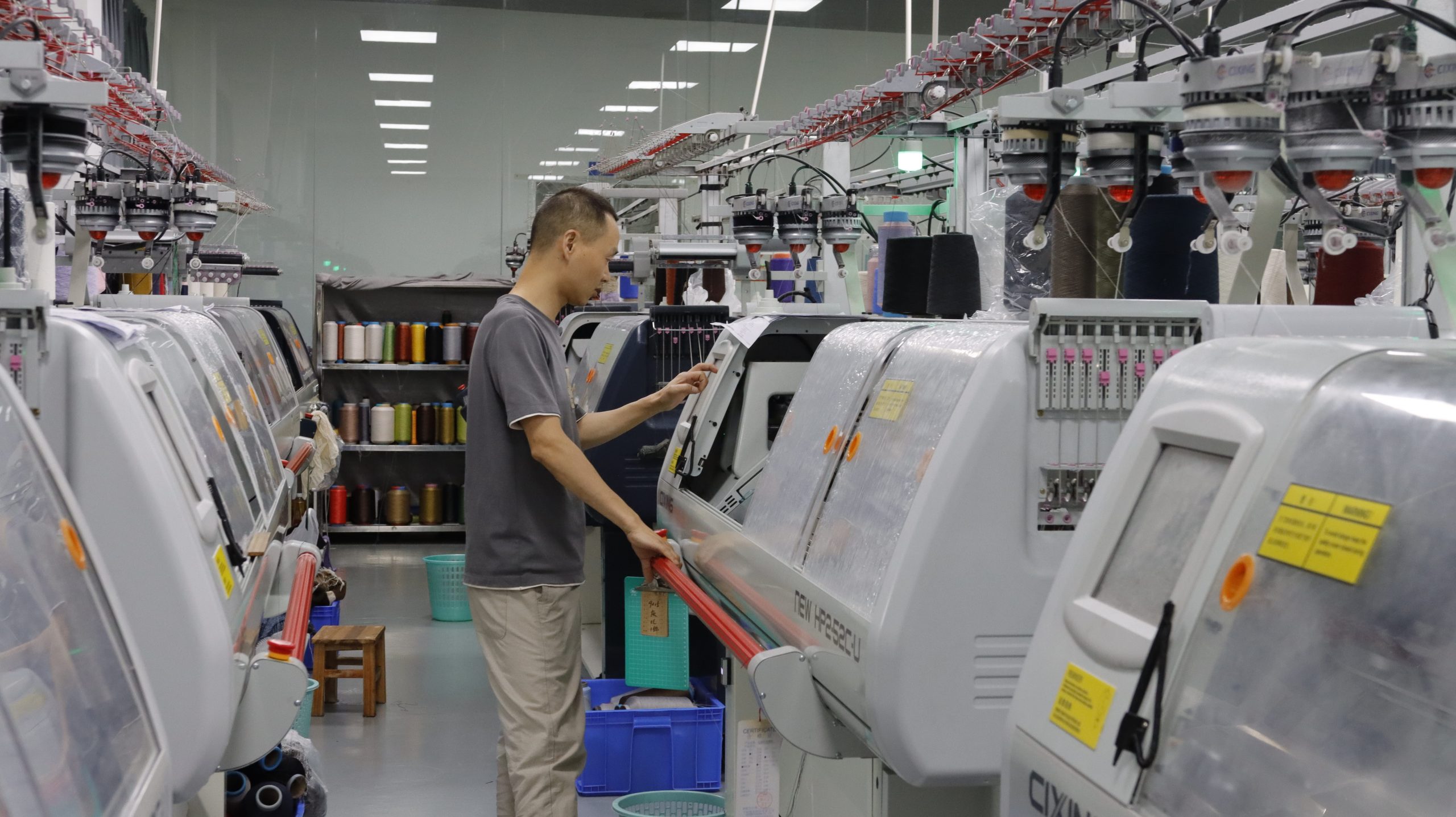Face to face contact in fashion hotspots promotes cooperation
Face to face contact with manufacturers in fashion hotspots to increase communication and understanding opportunities with them.
First, face-to-face contact offers an unparalleled opportunity to build intimate online relationships. Although digital communication has become an important part of our daily lives, there is still no substitute for real human interaction. Through face-to-face contact with manufacturers, not only can you better understand their working methods and production processes, but you can also build a closer partnership. This close contact can help designers better understand the needs and capabilities of manufacturers, so as to better design and production planning, improve the quality and competitiveness of products.
Secondly, face-to-face communication helps to deepen mutual trust and understanding. In the digital age, the transmission of information has become faster and more convenient, but at the same time, it is easy to cause uncertainty and misunderstanding of information. Through face-to-face communication, both sides can express their ideas and needs more clearly and reduce misunderstandings and deviations in communication. At the same time, through face-to-face communication, the two sides can also better feel each other’s sincerity and sincerity, so as to establish a more solid foundation for cooperation. This foundation of trust and understanding will help both parties communicate and collaborate more smoothly in cooperation, and jointly promote the development of products and brands.
To sum up, face-to-face contact provides important opportunities and conditions for the establishment of intimate network relationships. Through face-to-face communication and exchange with the manufacturer, the designer can not only better understand the needs and capabilities of the manufacturer, but also deepen the trust and understanding of the two sides, thereby establishing a more stable and lasting partnership. This close network relationship will help to improve the quality and competitiveness of the product, and promote the continuous development and growth of the brand.
Build a personal relationship with the manufacturer
One of the first steps to building a personal relationship with a manufacturer is to gain insight into their family situation. It’s not just about satisfying curiosity, it’s about building a deeper connection. By getting to know the manufacturer’s family, you can better understand their life dynamics, family values, and career aspirations. This knowledge helps you target your support more, making the partnership more intimate and real.
For example, if you learn that the manufacturer has children in school, you can be flexible about the schedule in your negotiations so that they can better juggle family and work. This kind of concern not only shows your professionalism, but also lays a good foundation for building long-term cooperation.
In addition to family, understanding the manufacturer’s cultural background is also an important part of building personal relationships. Cultural background influences a person’s values, ways of thinking and habits of behavior. By understanding the cultural background of the manufacturer, you can better understand the way they make business decisions and better adapt to their work habits.
For example, in some cultures, business decisions may focus more on interpersonal relationships and trust than on simple transactional relationships. In this case, by demonstrating respect and understanding of their culture, you will be able to facilitate cooperation more effectively. This in-depth cultural understanding not only helps build trust, but also creates a more harmonious working atmosphere for both parties.
Overall, building personal relationships with manufacturers is one of the keys to success in the high-end cashmere products industry. Showing respect for their individual differences by gaining a deeper understanding of their families and cultural backgrounds can help build a deeper and stronger foundation for business relationships.
Competitor monitoring and NDA signing
In the high-end cashmere product market, the choice of manufacturer has a direct impact on product quality and brand image. Therefore, it is essential to monitor and understand the cooperation of potential manufacturers. First, companies need to pay close attention to the existing suppliers in the market and the partnerships they have with their competitors. This can be done through market research and information gathering within the industry. Second, companies can obtain information about potential manufacturer cooperation by attending trade shows, professional conferences, and direct communication with suppliers. In addition, establishing and maintaining good relationships with existing manufacturers is also an important way to obtain information. Finally, signing a non-disclosure agreement is a key step in ensuring the security of sensitive information. This protects the company’s intellectual property and prevents competitors from gaining access to critical information.
The protection of intellectual property is also crucial. Signing a non-disclosure agreement is a common way to protect a company’s intellectual property. First, companies need to sign non-disclosure agreements with potential partners or manufacturers that clarify the responsibilities and obligations of both parties regarding information sharing and protection. The NDA should specify what information is confidential and under what circumstances it can be shared or disclosed. Second, companies should ensure that confidentiality agreements are effective and enforceable. This means ensuring that the terms and conditions in the agreement are legally valid and can be effectively enforced. Finally, companies need to regularly review and update NDAs to ensure they are aligned with changing market conditions and business needs. This can ensure that the enterprise’s intellectual property rights are adequately protected, so as to prevent competitors from obtaining critical information and infringing on the interests of the enterprise.
Well-timed intentional distancing
Moderate indifference is a carefully designed way to convey an unwavering attitude to the other side during negotiations. This indifference is not callous, but a carefully measured display of attitude. Through moderate indifference, one negotiating party can suppress the bargaining power of the other party to a certain extent, so as to control the pace and direction of negotiations more favorably. For example, in business negotiations, when the other side puts forward conditions or prices, showing a certain hesitation or indifference can cause the other side’s unease and anxiety, which leads to the other side more willing to make compromises or concessions.
Well-timed and deliberate distancing is not just a gesture, but a carefully designed strategy to secure more favorable prices and conditions. By showing moderate indifference, one negotiating party can influence the psychological expectations of the other party to a certain extent, so that it will be inclined to accept a more favorable offer or condition. In business negotiations, price is often one of the focus of attention of both parties, and through timely intentional alienation, one negotiating party can reverse the situation of price negotiation to a certain extent and obtain a more reasonable or favorable price. At the same time, deliberate distancing at the right time can also obtain more favorable conditions in other aspects, such as extending the payment cycle and improving product quality requirements.
To sum up, deliberate distancing at the right time is an effective strategy in business negotiations to get more favorable prices and terms by showing moderate indifference. However, it should be noted that intentional distancing is not a tool that can be used at will, but needs to be carefully considered and properly mastered in order to achieve its maximum effect.
The importance of first singles
The first order is not only the beginning of a business transaction, but also a reflection of the brand’s sincerity in cooperating with the manufacturer. By proactively ordering, the brand communicates to the manufacturer its desire and determination to collaborate. This initiative not only shows the professionalism and pragmatism of the brand, but also shows its trust and respect for the manufacturer. In a highly competitive market, this positive attitude and determination can earn the brand the trust and respect of the manufacturer, thus laying a solid foundation for future cooperation.
The first order is not only a transaction, but also a key step in establishing an initial partnership. Through the first order, the communication and cooperation between the brand and the manufacturer can be officially launched. The establishment of this cooperative relationship not only provides a platform for the two sides to work together, but also lays the foundation for future cooperation. During the delivery of the first order, both parties will learn about each other’s workflow, production capacity and product quality, thereby establishing the basis for mutual trust and cooperation. Through the establishment of an initial partnership, the brand and the manufacturer can jointly discuss the future direction of cooperation and development strategy, laying a solid foundation for a long-term stable partnership.
Therefore, the importance of the first order is that it is not only a transaction, but also a key step to demonstrate the sincerity and determination of the brand and establish a cooperative relationship, laying the foundation for long-term cooperation between the two sides. By proactively placing orders, brands can demonstrate to manufacturers their sincere desire to work together, thereby earning their trust and respect and laying a solid foundation for future partnerships.
First order in person
Going to the first order in person means much more than simply going to the manufacturer for a quality check and payment. This process is a true statement of brand credibility and product quality, and an opportunity to build a close partnership with the manufacturer.
First, a personal visit to the manufacturer for quality inspection is the most direct and rigorous way to review the quality of the product. During the field inspection process, every detail of the product can be comprehensively observed, from the selection of materials to the manufacturing process, to ensure that the product meets the expected high quality standards. By personally participating in the inspection, the brand can have a more intuitive and in-depth understanding of the quality of the product, but also can timely discover and solve possible problems to ensure the consistency and reliability of the product. This rigorous attitude shows that the brand attaches great importance to quality, and also enhances the trust and loyalty of consumers to the brand.
Second, instant payment shows the brand’s integrity and trust in the manufacturer. By making payments on site, the brand expresses its recognition to the manufacturer of its process technology and product quality, while also demonstrating itself as a responsible partner. This timely payment can not only promote good cooperation between the two parties, but also ensure the smooth progress of the production process and avoid financial problems affecting the delivery and quality of the product. At the same time, it also helps to establish a long-term and stable cooperative relationship, laying a solid foundation for the future development of the brand.
In short, the practice of visiting the first order is not only the guarantee of the brand’s product quality, but also a positive attitude of cooperation and integrity. Through strict quality inspection and timely payment, the brand can not only ensure the stability and reliability of product quality, but also establish a good cooperative relationship with the manufacturer to jointly promote the development and growth of the brand.

 English
English Deutsch
Deutsch Français
Français Italiano
Italiano Español
Español Русский
Русский Polski
Polski Nederlands
Nederlands Svenska
Svenska

